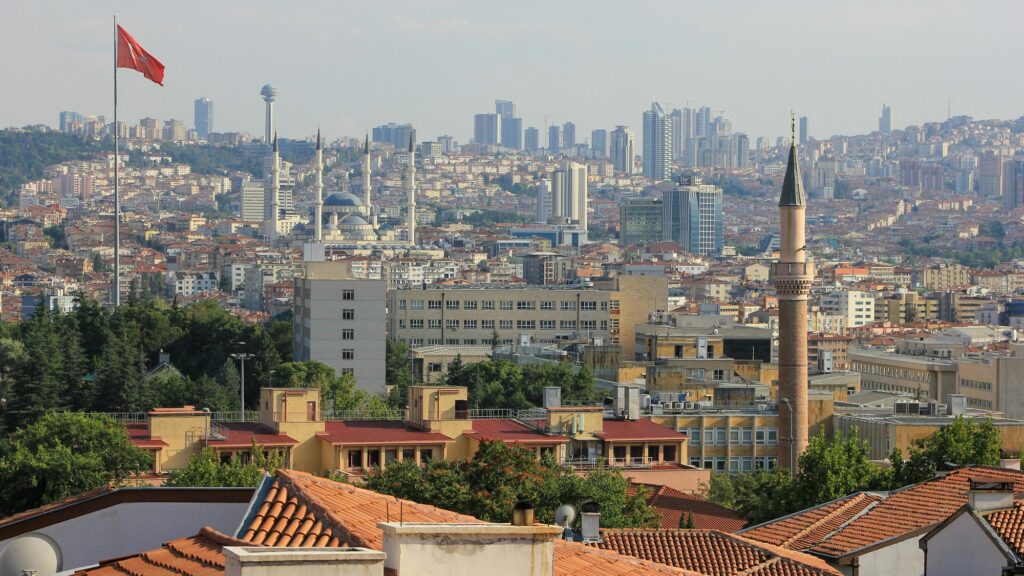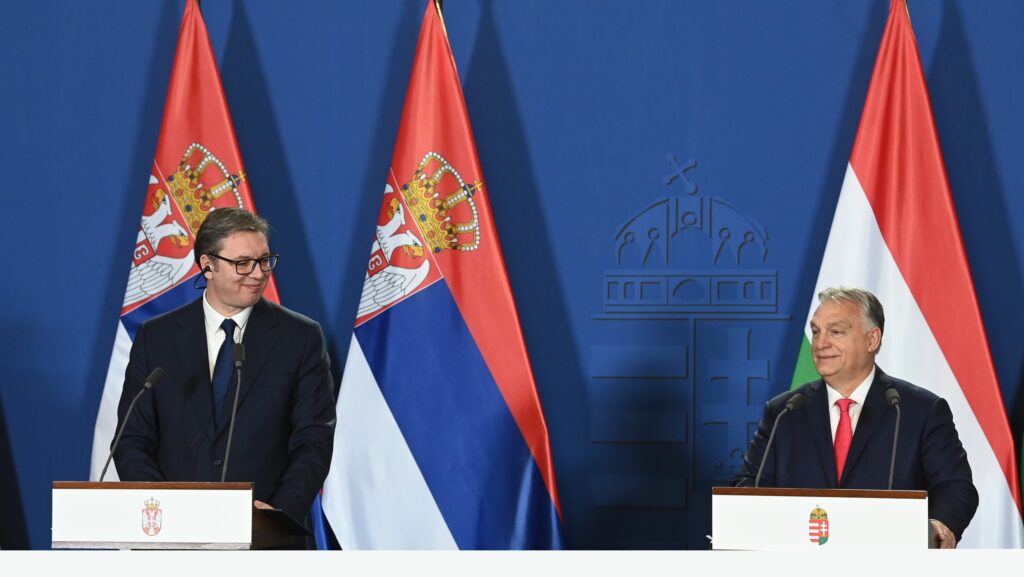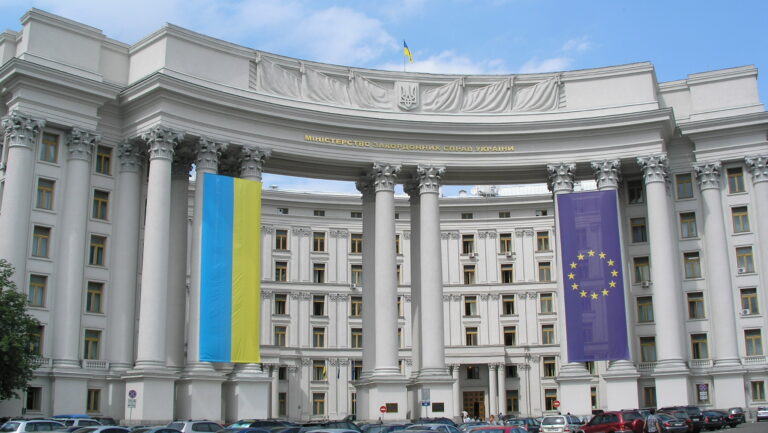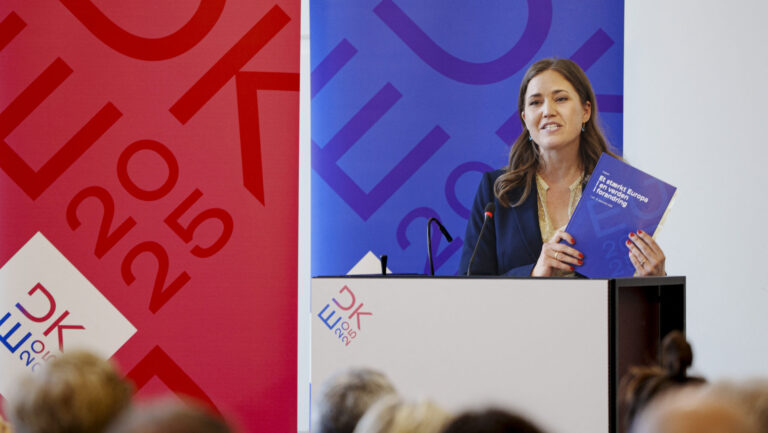The Turkish opposition party, CHP, achieved a major victory in the Turkish local elections on 31 March 2024. It was not only successful in gathering the most votes across the country but also emerged victorious in major Turkish cities such as Istanbul, Ankara, and Izmir. The results are claimed to be the best for the CHP since the 1977 elections. While the total share of the votes makes it hard to call it a decisive defeat for the ruling AKP party, a deeper look at the economic weight of the municipalities enables a more nuanced understanding of the results.
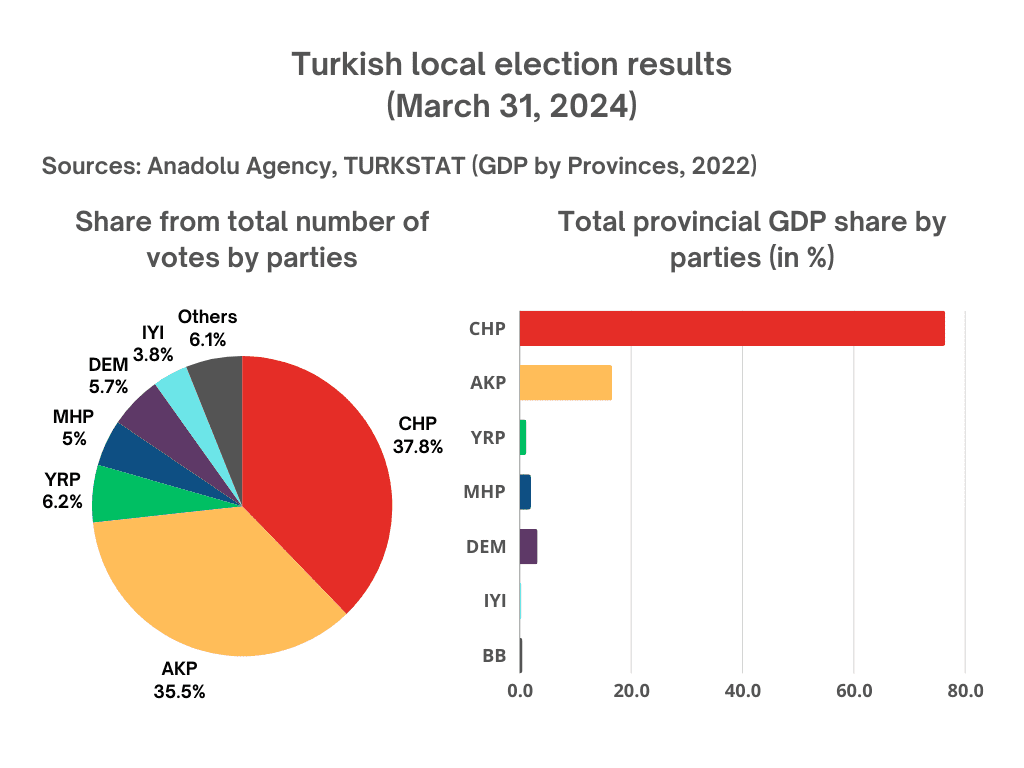
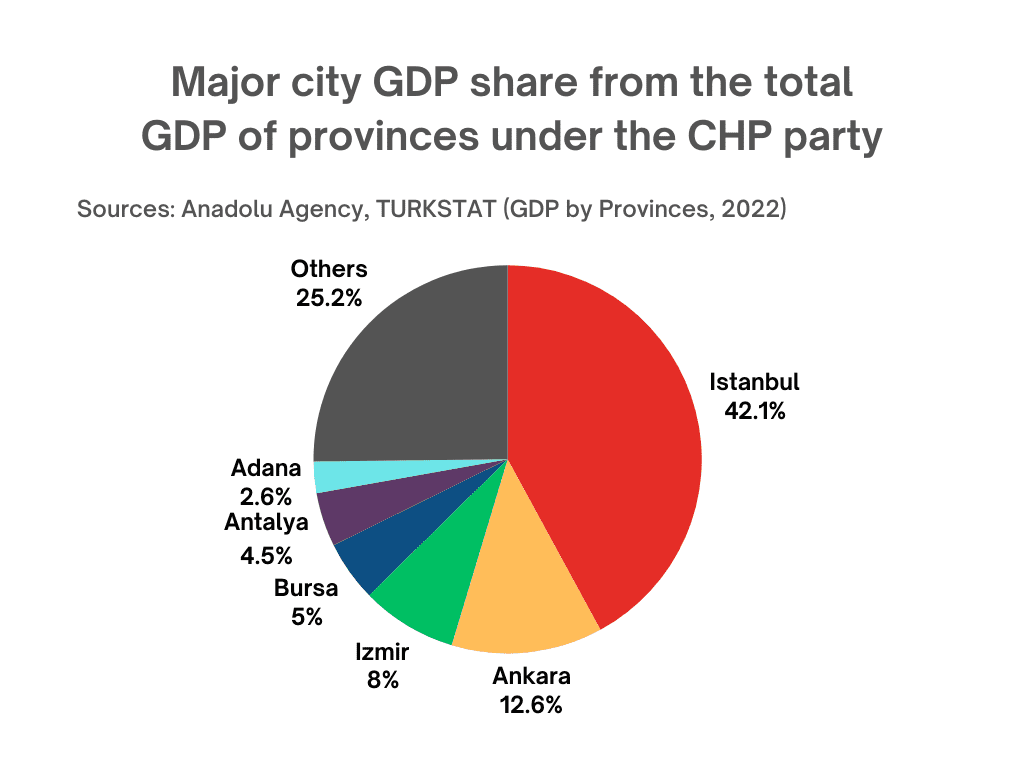
According to the results reported by Anadolu Agency, the AKP won 35.49 per cent of the votes across Türkiye. This places them only about 2 percent behind the winning party, the CHP, which gathered 37.77 per cent of the votes. While this may seem like a small difference, the major importance lies in the cities controlled by the opposition. Control over such cities as Istanbul, Ankara, Izmir, Bursa, Antalya, and Adana gives the CHP a major financial advantage, providing it with strong leverage in preparation for the next elections. The combined GDP of provinces won by CHP, in 2024 local elections, accounts for around 76.4 per cent of the total Turkish GDP. This share is 4.6 times bigger than the share controlled by provinces won by AKP, which only accounts for 16.6 per cent. Such a comparison sheds further light on the significance of the opposition’s victory. As seen on the chart, Istanbul and Ankara alone contribute to over 54 per cent of the GDP controlled by the provinces won by the CHP party.
A Shift in Domestic Politics
It is certain that the results of the 2024 Turkish local elections are set to shift the dynamics of Turkish internal affairs, given that the opposition controls the provinces with the greatest economic value generation. Hence, this raises interest in the elections’ influence on the foreign policy dynamics of Türkiye.
It is important to note that while municipal elections do not directly affect foreign policy, certain shifts might be expected. The reason for this is the strong popularity of the opposition following local elections, which further popularizes the CHP for the upcoming 2028 elections. One of the reasons contributing to the CHP’s loss in the 2023 Presidential elections was the weak foreign policy agenda of its candidate, Kemal Kılıçdaroğlu.
The current presidency of Recep Tayyip Erdoğan might be his last.
This possibility can raise his desire to leave a strong and positive legacy after more than 20 years of leadership. Thus, a loss on the domestic stage can push the Turkish President to adopt more dynamic policies, both domestically and externally.
One such shifting dynamic can be expected in Turkish relations with the EU and the US. Given that the local election has been portrayed as a success for democracy, it is safe to assume that the Biden administration and officials in Brussels will perceive it as a positive sign for the development of closer cooperation with Türkiye. The High Representative of the EU for Foreign Affairs and Security Policy has praised the local elections in Türkiye as ‘calm and professional’ and applauded the commitment of citizens to local democracy. Thus, for the next six months, until the US elections take place in November 2024, a strategic use of this period can be expected by the Turkish government to strengthen relations with the EU and the US.
Effects on Hungarian Policymaking
This development is crucial for Hungarian policymaking since Hungary will hold the presidency of the Council of the European Union from July 2024. Hungary should play a strategic role in the rapprochement between Türkiye and the EU, given its upcoming presidency in the Council and its extensive ‘Eastern Opening’ policy.
Currently, major cooperation spheres between the latter two are trade, energy, transport, and migration management. At the same time one of the issues to be solved is the settlement of the situation in Cyprus. Hungary can play the key role in such strategic warming between the EU and Türkiye. Given the Hungarian policy of ‘Eastern Opening’ and observer status in the Organization of Turkic States, Hungary has developed close relations with Türkiye during the last decade.
Using its strategic role, Hungary was able to achieve greater cooperation with Türkiye in all mentioned spheres. In his speech, during the Summit of Foreign Ministers of OTS, in November 2023, Hungarian Foreign Minister Péter Szijjártó, described Hungary as the European pillar of OTS’s role as a bridge between East and West. This is reflected in its policies towards Türkiye. Hungary is one of strong contributors to the transit role of Türkiye both in Eurasian connectivity and energy sphere. Specifically, during the last quarter of 2023, Hungary started importing Azerbaijani natural gas, increased imports of Kazakh oil, reached an agreement on delivery of Turkmen and Turkish gas. All these deliveries eventually pass through or originate in Türkiye. Along with it, Hungary has a strong stance against illegal immigration, which was further stated by the Foreign Minister, during the summit of Central European Foreign Ministers’ summit in Ljubljana on 27 March 2024. Türkiye plays crucial role in prevention of illegal migration to the EU, due to the EU-Türkiye Statement reached in 2016. While the effectiveness of this deal remains questioned, it certainly contributes to the easing of illegal migration flow to the EU.
Using this timing,
Hungary can play a key role in potentially warming EU–Türkiye relations.
This can be achieved through agenda-setting during Hungary’s presidency of the Council. One such topic could be the modification of the illegal migration prevention deal to tighten regulations and increase financial support to Türkiye. Additionally, Hungary is already the first country to reach an agreement with Turkmen government on natural gas delivery. Greater delivery of this crucial resource from Turkmenistan can be another topic considered in the Council to enhance the energy security of Eastern Europe. When it comes to the settlement of the situation in Cyprus, Hungary can play the role of a mediator from the EU. Given its close relationship with Türkiye, this could be welcomed by both sides.



